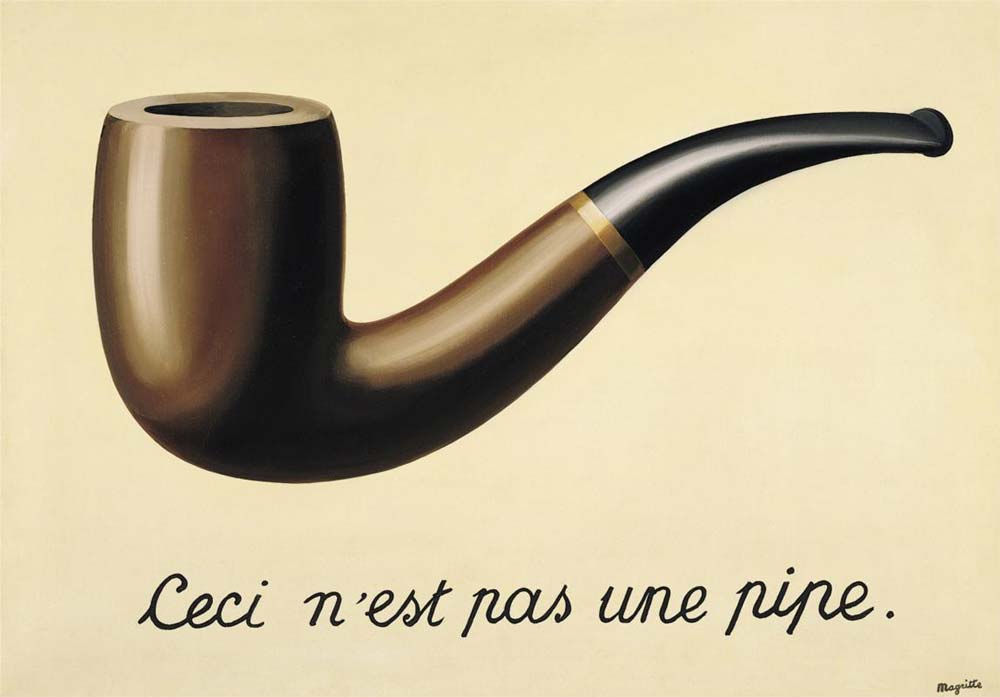| The Treachery of Images | |
|---|---|
 |
|
| Artist | René Magritte |
| Year | 1928–29 |
| Medium | Oil on canvas |
| Location | Los Angeles County Museum of Art, Los Angeles, California |
| Dimensions | 25 in × 37 in |
| 63.5 cm × 93.98 cm | |
| René Magritte Famous Paintings | |
| The Son of Man, 1964 | |
| The Treachery of Images, 1928–29 | |
| The Human Condition, 1933 | |
| Golconda, 1953 | |
| The Listening Room, 1952 | |
| The False Mirror, 1928 | |
| Elective Affinities, 1933 | |
| The Mysteries of the Horizon, 1955 | |
| The Empty Mask, 1928 | |
| Complete Works |
The Treachery of Images is an iconic work of art completed in 1929. The painter, René Magritte, was a master of contemporary art. Completed when he was only 30 years old, the classic painting is an example of surrealism and uses a simple image to convey a deeper message. The painting along with its memorable words is a part of a series of word art images by the artist.
Style and Technique
René Magritte often used words and strong images to convey a message in his work. The oil on canvas painting is quite clearly a pipe, yet the words make it known that it is not a pipe. The “painting” is not a pipe, it is only a “painting of a pipe”. Magritte was known for painting with the clarity of an advertisement in a magazine, while infusing a message that causes the viewer to question their reality. The pipe’s deep shades of brown, its center placement on the canvas, and a background the color of bleached bones illustrate how contemporary art can have meaning.
A painting that uses a unique twist on conventional objects, The Treachery of Images is one of Magritte’s most recognizable pieces of art. The combination of words and the idea of questioning what one sees is a huge part of this painting’s appeal. René Magritte’s modern art classic remains a fixture in the world of surreal paintings.